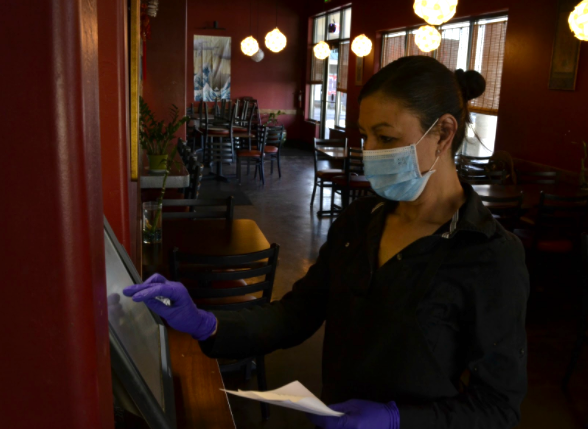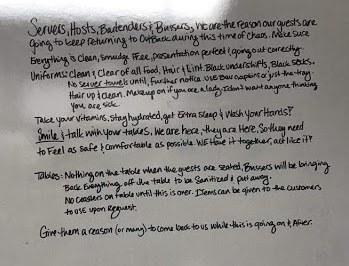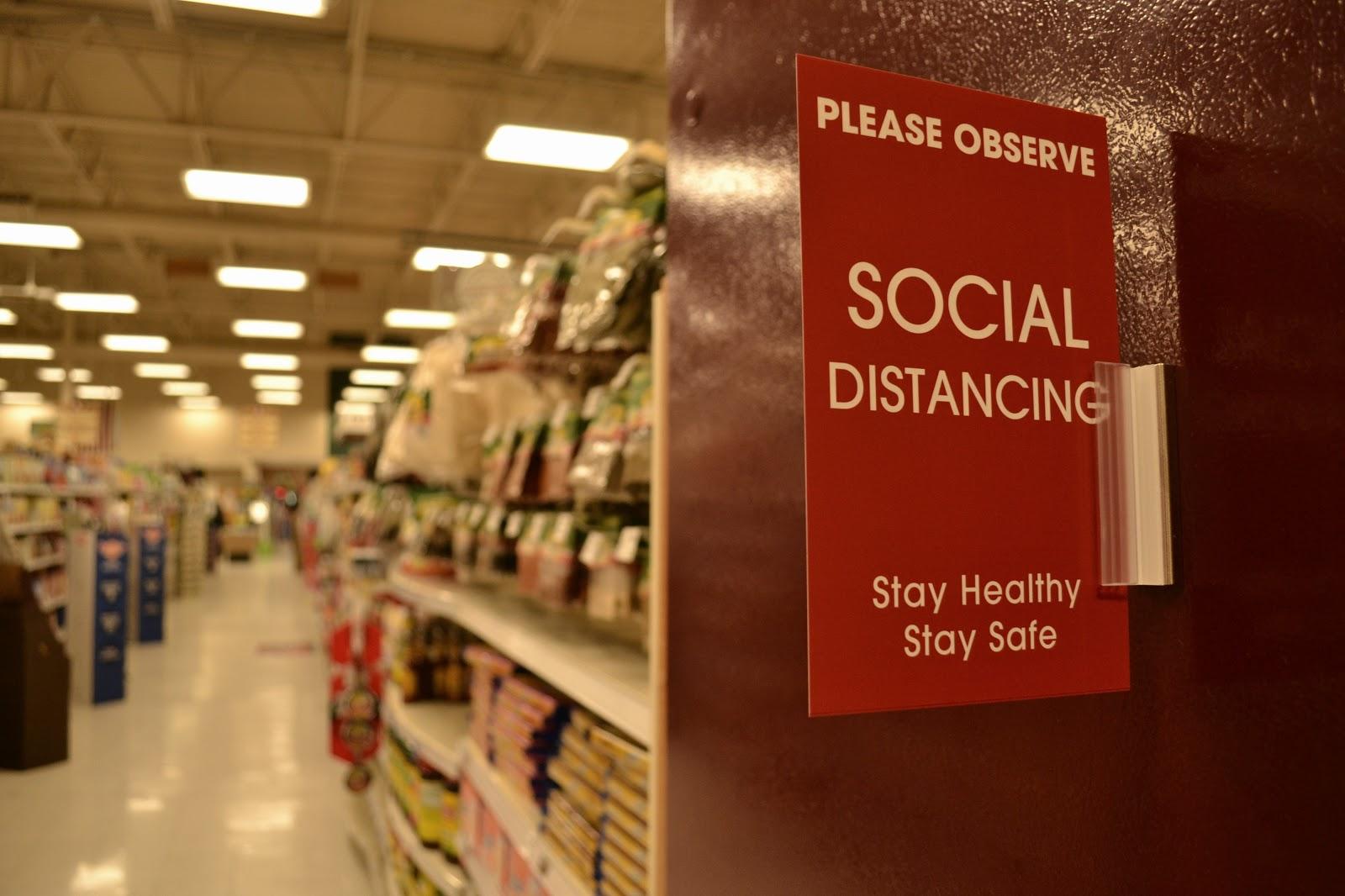How to Protect Ourselves by Protecting Each Other
by Christina Lewis | April 26, 2020

Ninety days. Three months. One season.
In 2020, we learned that this is all the time it takes to destabilize an entire global economy. Ninety days to turn a supposedly unshakable model of infinite prosperity into a pile of rubble.
In the past few months, people everywhere have been forced to confront the glaring discrepancy between individual interest and communal health; between luxury and necessity; and between fiscal and physical wellness. We have become unwilling witnesses of a fact that we have chosen to ignore: that an economic system that is built on the backs of the underprivileged and minorities, and on the exploitation of the poor, cannot sustain itself when shaken to the core.
A Society Shaken
COVID-19 has ripped through our society and exposed us at the seams. When the economy and relentless fiscal growth are prioritized over the individual, we are left in a compromising situation where, for some people, survival means being able to afford food and housing for their families, while for others it means literal life or death. And if there’s one thing this virus has shown us, it’s that the two can no longer be mutually exclusive.
One-third of American workers are one paycheck away from homelessness. As restless, underpaid workers take to the streets to demand their right to work in the midst of this pandemic, it is important that we remember that these desperate people are not the enemy.
The enemy is a system that leaves them with no other choice. A system that forces them to put themselves and others at risk to meet a basic standard of living. A system that preaches that consumption, individualism, and endless economic growth are the only ways to give life meaning. A system that constantly turned its back on their plights until it was too late.
We have reached a tipping point from which there is no return, and as the government threatens to throw us back into an unprepared society, one can’t help but wonder what we can do to better protect ourselves and our loved ones from this invisible yet imminent danger.
What Can We Do?
We cannot continue to ignore the conditions of those who are less privileged than ourselves, when it is a looming reality for all of us. We are not “temporarily embarrassed millionaires,” we are members of a globally integrated society that is dependent on the health and well-being of all its members to thrive. And when the threat of destroying the planet has proven insufficient to stop our mindless consumption, will the threat of our fellow citizens dying be? What if their safety is vital to our own?
"[W]hen the threat of destroying the planet has proven insufficient to stop our mindless consumption, will the threat of our fellow citizens dying be? What if their safety is vital to our own?"
In this divisive political climate, one thing that we can all seem to agree upon is a general distrust of our governing powers. It is a scary time in history, and many people (myself included) are feeling the weight of existential dread as things seemingly spiral out of our control. The political reform that we want, and need, still feels so distant, but fortunately there are actions that we, the people, can take to bring control back into our own hands.

Voting with Your Dollar
Support. Local. Businesses. It’s a point that cannot be emphasized enough as we move into this post-pandemic world. But not just local businesses: ethical businesses. In a capitalistic society, the consumer truly is the defining variable in whether a business succeeds or fails, and the way a person chooses to spend their money is the power of the people. When profit is the bottom line, it is the only language businesses will listen to.
As we’ve learned, essential workers are the backbone of our society, and we have failed our duty to protect them: pre-pandemic and now. Corporations and their CEOs have benefited from the tension between the classes to siphon money to the top while denying their workers the necessary tools to escape the cycle of poverty. Now, people who can’t collect unemployment or paid time off are forced to work under the jaws of capitalism for awful pay; risking their lives every time they touch a stranger’s money so that consumers can buy overpriced coffee.
Essential workers carry the weight of the economy on their shoulders. We owe it to them to vote for benefits packages and fair wages with our dollars by supporting companies and businesses that care about their employees, and to punish those who don’t by refusing to support them. If nothing else, this pandemic has served to shine a light on our unethical corporations, drawing a clear line in the sand about what behavior is acceptable. It is our job as mindful consumers to pay attention to where that line ends and to use our hard-earned dollars to make a positive impact.
Question Consumption
If there is one thing that this pandemic has put into perspective, it is the extent of what is actually necessary for a person’s survival: shelter, food, health, family. These are the essential basics, but social convention has demanded that we stretch our means to their limits to further society’s economic gain. The U.S. federal minimum wage has stayed stagnant for nearly three decades; meanwhile, we have inflated the cost of living to a standard that many people cannot afford but feel socially pressured to maintain.
Thirty years ago, the “American dream” supported a modest household, a landline, basic cable, and air conditioning—if you were lucky. Now, a person is considered a social failure if they don’t own a third-row SUV and the latest phone, and aren’t keeping up on television shows from four different streaming services. Capitalism has convinced us that we have to maintain a luxurious lifestyle for our lives to have value, distorting our vision of what survival really means. And consuming is the leg we fall back on to feel safe.
"Capitalism has convinced us that we have to maintain a luxurious lifestyle for our lives to have value, distorting our vision of what survival really means."
However, by making conscious consumption choices, rather than just spending because we feel out of control, we can limit the spread of the virus and the economic strain on our community. In the past 30 years, we have drastically inflated everything we think we need, but this is an opportunity for people to get in touch with what is really important, to redefine ourselves beyond our financial capabilities, and to be more present with those we love.
United (From a Distance)

At the end of the day, we are all just trying our best to survive as unregulated capitalism, corporate greed, and individualistic tendencies threaten to consume us all. Healthcare workers are overworked and under-equipped to deal with the influx of patients flooding hospitals, people are dying alone because their families are unable to visit them, millions are unemployed and trying to make it by without any sort of way to generate an income, and no one knows what the next day is going to bring.
Now more than ever, it is tempting to shift the blame, and now more than ever, it is important to embrace community and understanding. The vast majority of those who are struggling are grappling with an unfair moral dilemma. People should not be forced to choose between bankruptcy and the health of their community, but that is exactly the situation Americans have been forced into.
This is an unprecedented time in our history, and it’s impossible to say what the future holds. But if one thing is certain, it is that only through communal effort and interest that we can solve this problem, and it is only together that we can prevent it from happening again.
Christina Lewis is a freelance writer and bartender living in Twin Falls, Idaho. She graduated from the College of Southern Idaho with a degree in English and now spends her free time writing her novel, dancing in her living room, and loudly sharing her opinions with anyone who will listen. Her goal with her writing is to raise social awareness, promote a healthy exchange of ideas, and expose the unifying thread of experience that runs through all people.

